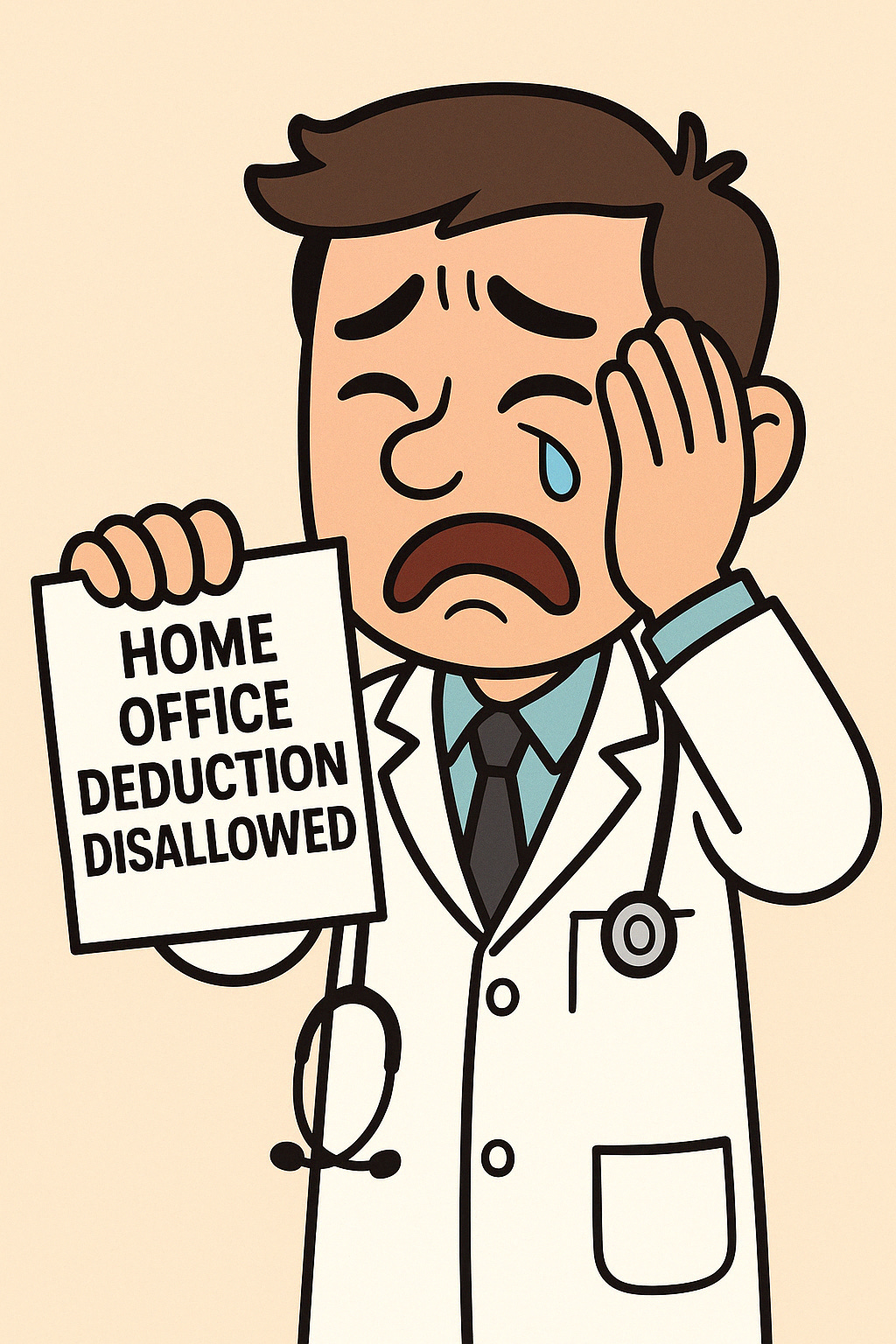What All Physicians Taking the Home Office Deduction and the Augusta Rule Must Know
Your CPA Probably Didn’t Tell You
As a physician, understanding drug-to-drug interactions is very important to prevent any serious complications. You would want to avoid prescribing Bactrim to a patient taking warfarin because the INR can skyrocket as a result of the Bactrim-warfarin interaction, and the patient can end up in the ER with a massive GI bleed.
Let’s talk tax strategy interactions. They can be just as dangerous to your wallet.
If you’re a physician with a side hustle, small business, or S-Corp, you’ve probably heard of the Home Office Deduction and the Augusta Rule. You might even be using both—congrats on being tax-savvy!
But here’s the kicker:
These two strategies, while powerful on their own, can collide in a way that wipes out your home office deduction entirely. It’s the tax version of prescribing Bactrim and warfarin together—if you’re not careful, your wallet can bleed.
So if you like keeping both of your deductions (and avoiding tax bleeds), read on.
What Is the Augusta Rule?
The Augusta Rule, found in IRC §280A(g), is a gem of a strategy that allows homeowners (i.e., you) to rent out their home—up to 14 days per year—tax-free.
So you would rent your home to your S-Corp, and the S-Corp will use it to hold shareholder meetings, strategy sessions, or employee retreats, and you can pocket the rent tax-free as long as you rent it for only up to 14 days.
Free money, baby!
And your S-Corporation can take the rent it paid you as a business deduction.
This is an easy-to-understand strategy that can shift money from the S-Corp into your pocket tax-free! A great strategy.
What Is the Home Office Deduction?
The Home Office Deduction, governed by IRC §280A(c), allows you to deduct expenses related to a portion of your home that’s used exclusively and regularly for business.
That could be a dedicated room, a converted garage, or even a side table that no one else is using but you.
Done right, you can deduct a portion of your mortgage interest, utilities, repairs, and other home-related expenses.
It’s a single hit, so to speak, in terms of the tax benefits you get. Every hit adds up to win the game, right?
When Two Good Strategies Don’t Mix
Now here’s where things get interesting (and where your CPA may not have advised you on this).
When you use the Augusta Rule and rent your entire home to your S-Corp for a business event—even for just a day—you can inadvertently cancel out your home office deduction.
How?
Because the home office deduction requires that your space be used exclusively for business. But if you rent out the entire home to your S-Corp under the Augusta Rule, then that home office space becomes part of the rental.
And that breaks the exclusivity requirement. The IRS doesn’t care if you only did it for one day. Once the home office is rented to someone else—even your own S-Corp—it no longer qualifies.
The Fix Is Easy (But Rarely Done)
The good news? This is totally preventable.
All you need to do is make sure your rental agreement explicitly excludes your home office from the space being rented under the Augusta Rule.
For example:
“This rental agreement does not include the space located at [insert home office address or description], which remains in exclusive use by the homeowner for business purposes.”
Boom. Problem solved.
But here’s the reality: most CPAs and templates out there may not include this exclusion language. And that’s how many physicians have unintentionally can lose their home office deduction while trying to save money using the Augusta Rule.
Final Thoughts
As a physician, understanding drug-to-drug interactions is critical—prescribe the wrong combo, and a patient on warfarin could end up with an INR of 8 and a ticket to the ER for a GI bleed.
Tax is the same. When you’re using multiple strategies to treat a tax problem, you need to understand how they interact—otherwise, the combination can cause an undesirable tax outcome.
These days, it’s common for physicians with side gigs or private practices to use both the Augusta Rule and the home office deduction. But unless you structure things carefully, one strategy can cancel the other out—and cost you real money. Your wallet can bleed.
Now that you know better, you can do better.
So next time your CPA hands you that Augusta Rule rental agreement, read the fine print. And make sure that your home office is excluded from the rental.
Disclaimer: click here





